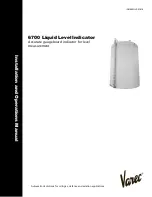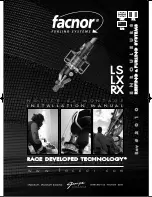
Post-operative follow up:
The patient should be instructed to inform his surgeon without
delay of the slightest change in his operated joint. Early detection of an impending complication
allows the surgeon to initiate timely and effective countermeasures. A revision performed at the
right time has a much better chance of success. It is advisable that the surgeon systematically
monitors every patient and if annual checks are not possible the surgeon should be sent a
control radiograph of the joint. This will enable the surgeon to detect any complications at an
early stage.
MRI Safety:
Non-clinical testing has demonstrated that JRI Hip Systems are MR Conditional. A
patient with this device can be scanned safely under the following conditions:
- Static magnetic field of 3-Tesla or less and a maximum spatial gradient magnetic field of 720-
Gauss/cm or less.
Non-clinical testing has indicated that MRI-related heating is negligible at 3-Tesla.
Image quality may be compromised if the area of interest is in the vicinity of, or relatively close
to, the implanted device.
Additional information is available upon request.
Device Lifetime:
The lifetime of this device is dependant amongst other things upon the
patients’ weight / level of activity and on the operational technique. Whilst it is normally
expected that the lifetime of this implant will exceed a minimum of 10 years, it will be subject to
wear and tear through normal use.
Further information:
For further information, please contact your JRI Ltd Sales Representative
or JRI Ltd directly.
7
EN
155-030 (issue 6).indd 7
7/5/2012 6:15:50 PM
Superceded










































